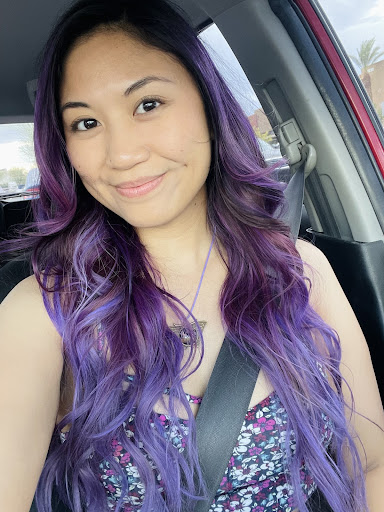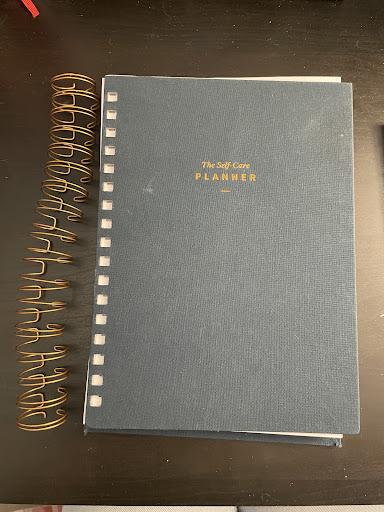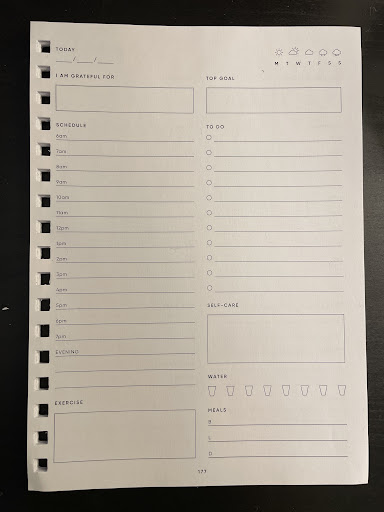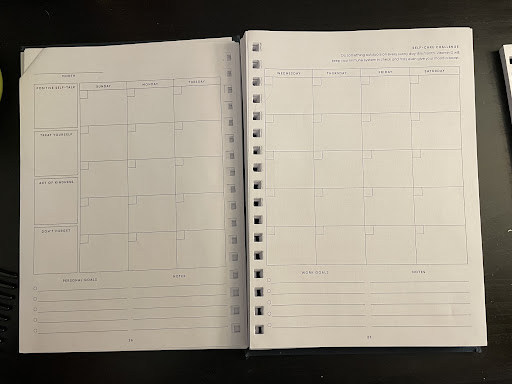Just Writers’ Things: My Therapist Told Me to Journal
- Mei-Mei Mijares

- Aug 25, 2021
- 7 min read
Updated: Nov 7, 2021

To her suggestion, I thought “duh, of course I journal--I’m a writer.” And just like that “aren’t you worried” tiktiok trend, I stopped that thought knowing I’ve had maybe a month’s worth journaling dry spell that led up to this very moment of high stress. My thoughts feel jumbled up and I’ve been having a hard time controlling my temper/anxiety lately. I found myself skipping meals and forgetting important tasks, which is so much easier when I journal and plan my daily goals.
One thing to learn from this stressful period is 1) listen to your therapist; another is 2) maybe you should journal?
I know you’ve probably seen ads about journaling everywhere with the self-care movement running at an all time high during the pandemic. The LYF Instagram is no stranger to giving journaling prompts.
Regardless of journaling’s rising popularity, why should we journal? Why did my therapist, a licensed professional, suggest it to me?
According to the University of Rochester Medical Center Encyclopedia, journaling can “improve your mood” and help you identify stressors in your life. Journaling allows you to reflect on the day-to-day and review your behavior. We can think all we want, but organizing all those thoughts and seeing them on paper makes the experience less overwhelming. It’s so easy to get caught up in our negative emotions that we’ll use anything to distract us from worry, anger, or sadness. Sometimes we cope with substances, or with scrolling on Instagram for several hours straight. Neither of those are . . . the healthiest coping mechanisms, but how can you stop when that’s all you know?
I know us writers want to write all the time. We want to create. We want journal entries to breed great ideas for the next New York Times Bestselling Novel. There’s an end goal.
I have found that the bleakest, emptiest creative droughts in my life were a result of falling out of touch with myself.
Journaling is an avenue to tap back into self-awareness. What bothered you today? What made you happy? Was your breakfast pretty wack? Did that customer’s comment of how you should go to school and get a real job make you feel invalid, despite the fact you have a degree? Oof. I know, you caught me. That one happened. But that’s the whole point, isn’t it?
I could sit on my bed, hours later, crying about it OR I could sit on my bed crying about it while writing out the experience in my negative journal. What is a negative journal, you ask? It’s brilliant. My therapist told me to get a plain, boring or even ugly journal and use it for negative thoughts; she then told me not to read it again.

I definitely have journal entries of what I would have said to those mean people and I tucked it away, disappointed I felt powerless at the time of the exchange but proud that I was able to get all my feelings out. I then reflected on why it got to me. Was I internalizing these cruel words because I wasn’t tending to my insecurity about my life path? Yes. And I talked to my therapist about it and wrote out what goals I wanted for myself.
We can write all we want, but we need to couple journaling with problem solving and action to promote real change.
She also suggested that I have a positive journal, which is the complete opposite. While my negative journal is a plain soft cover composition book, my positive journal is this “cute sushi” notebook that my aunt made. It makes me happy, so I put my happy thoughts in there, and use it to plan my trips and write about my life goals.
Journaling does not have to be that sexist, movie portrayal of teenage girls writing “Dear Diary” about only boys. It’s not like that. Some journal entries are like that but it’s not ALL like that. We’re multifaceted and complicated. We have things that are going on in our lives that need more attention and compassion.
But Mei, it’s so hard. I can never be consistent. I don’t know how to start.
Thank you for being open and honest with me. I never said it was easy. From what you know so far, I have called myself out already for being inconsistent. And I, too, want journal entries to birth masterpieces but they’re mostly rants, bad prose, and even worse poetry. But that’s okay!
The only way you can start is by writing. And well, getting a journal.
Okay, so I know you probably already have tons of thoughts in your mind so let’s say, for now, writing isn’t the problem. How do you know what journal to get?
Well, ask yourself, what do you need in your life right now? It’s not all about the writing. Sure, it’s incredibly important, but, what are you writing for?

Pictured: All of Mei-Mei’s journals from 2010 to present.
For organizing and accountability, I suggest . . .
What I like:
Undated (you can start or end wherever you want!)
Thorough on monthly, weekly, and daily goals
Includes weather forecast
Reminds you to drink water
Has a place for daily meals (I forget to eat so this is so helpful!)
Spiral bound so you can rearrange the pages to your liking
Small business
What I don’t like:
The months were together in one section, rather than dividing the weeks/days
The canvas gets dirty easily
Overall, this is a pricier choice but it has just about everything you need to record a holistic health routine. It helps me stay neat and on track with my to-do lists. It’s difficult for me to stay consistent, but the undated pages relieve that pressure of using every page. You can easily take those unused pages out and put them to the back.
2. A yearly planner
What I like:
This is good for simple things and if you track your health on an app
Notes sections
Tabs for each month
Everything is pre-set for you
What I don’t like
Low customization
You can’t move pages around
It was for 2020 so it’s half empty
I used to use yearly planners a lot more, but when I left school I think I just needed something that fostered holistic habits. I couldn’t continue to keep my focus on to-do’s—I had to think about larger goals for finances, emotional health, and physical health. I leveled up in life and my planners will have to follow suit.
If budget or being paperless is a concern, alternatives are always Google Calendar, Clue (helps those who menstruate), ColorNote (Android), and Notes (Apple).
For mindfulness I suggest . . .
What I like:
Digestible
Includes prompts
Small and portable
Bookmark!!
Undated
Lots of space to write
What I don’t like:
It’s hard for me to want to make time for it as a non-morning person, so I sometimes break the rules and do it at night.
This journal has helped me practice active gratitude, so much so that some days I don't need to write it down. I start my day already thinking what I'm grateful for and that outlook clears away some depression fog. The positive in life feels attainable.
For creating & everything else I suggest . . .
1. Notebooks and journals customized to your taste!
What I like:
Bound or tied journals: If you drop it, the pages are tucked away. Plus, I like to think that when it’s bound people are reminded it’s not theirs to read without permission.
Spiral bound/Hardcover/Firm Softcover: It’s much cleaner. I don’t recommend spiral bound books for my left-handed friends though.
Lined paper
Included bookmarks
Various sizes depending on use: Small is for on-the-go, work, or vacations!
When you give each journal a purpose, it is easier to create as needed.
I know as artists, we can get caught up in creating. All the work can bleed into other aspects of our lives but our bodies need to be healthy for our minds. We need to eat regularly and drink plenty of water. I’ve sat painting for 6-8 hours at a time with no breaks. To combat that habit, I needed to get my schedule down on paper.
There are times in life where I get so overwhelmed I feel like there is nothing good about life, so using a journal to practice gratitude has helped me start off my days with a positive mindset. Sometimes I re-read entries that make me happy, from recalling my first date with my boyfriend to poems I wrote in Poets’ Club meetings. I go back to these pages to remind me of the good in my life, especially on the days that depression and anxiety seem to creep out of nowhere.
Having journals with cute patterns and beautiful paper has encouraged me to write. It may be a little silly, but even if my writing isn’t polished, the way it looks on the page comforts me. Leather bound books and handmade paper do wonders for your inspiration. Put time and effort in what you write, but do the same in the things you write in and write with (but pens are a different topic).
It’s okay if you miss a few days, or weeks even. Luckily, tips for consistency work for whenever you can start again.
Start small.
Plug journaling into your routine.
Free-write.
Compartmentalize.
You’ll find yourself with more journals and more words written. You’ll find yourself knowing what you need to do today and this week. Your goals are set up. All because YOU took the time and the effort to put it all together.
Writing isn’t easy, but we all have to start somewhere.
Remember to be patient. Be kind. Trust yourself and the process.
…..
What should I write about next? Let me know here!
About the Author

Mei-Mei is LYF's Executive Assistant, Event Coordinator, and Editor-in-Chief. She graduated from UC, Santa Barbara with a B.A. in English and a minor in German. She was the President of UCSB Poets' Club. She has traveled to 12 countries and counting, feeling lucky and cursed as an Army brat. In 2019, she moved for the 9th time from Santa Barbara to Las Vegas, where she put her love for writing, performing, advocating for mental health, and building communities into the Love Yourself Foundation. Thankfully she can choose when she moves now, so you'll see this jack-of-all-trades singing on stage and juggling open mic sign-up sheets, hoping to spread love in all the ways she can.


























Comments